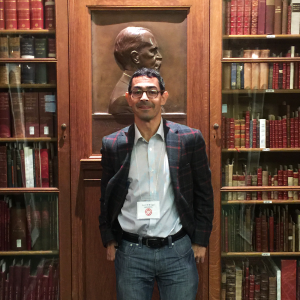Takeaway
Working as a primary care provider for the last 24 years, I can say without a doubt that reading fiction has expanded my capacity to connect with my patients with a greater level of empathy.

Lifelong Learning in Clinical Excellence | June 29, 2018 | 1 min read
By Scott Wright, MD, Johns Hopkins Medicine
Not all medical learners are interested in curricular elements focused on teaching the humanities. Given all that there is to be learned in order to practice medicine, the resisters may not appreciate how such content could possibly help them in the care of an individual patient. However, working as a primary care provider for the last 24 years, I can say without a doubt that reading fiction has expanded my capacity to connect with my patients with a greater level of empathy.
I’ve been able to work with many of the same patients longitudinally over a couple of decades, and I’m lucky that I’ve come to know my patients as people quite well. I’d like to think that for many, I’ve also come to understand the impact of their medical conditions on their lives. That said, reading well-written books where the protagonist is living with an ailment (e.g. blindness in All the Light We Cannot See, or an amputation in The Cuckoo’s Calling), provided me with a deeper understanding and a more authentic empathy.
While it is impossible to truly walk in the shoes of another person, reading fiction and asking open-ended questions (followed up by “tell me more” and “why?”) has been helpful in expanding my understanding of the challenges faced by some of my patients.
If you don’t like my anecdote, here’s a little supportive neuroscience from PLOS ONE: when researchers mapped brain activity of participants who were reading Harry Potter, they discovered that when reading a passage that involved flying on a broom, the same areas lit up in the brain as would light up when someone was detecting movement in the real world.

